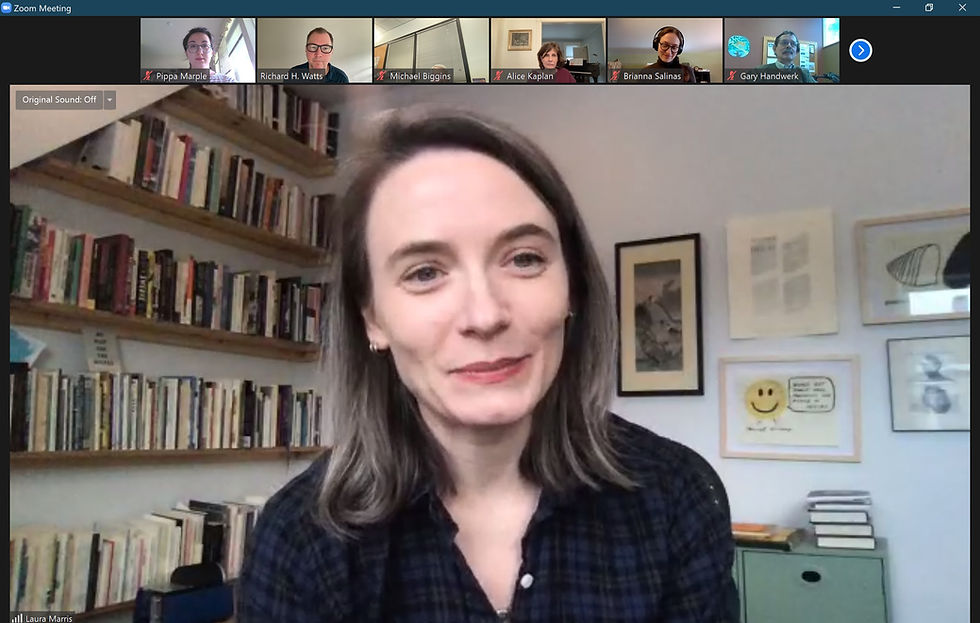Laura Marris, "Plague Chronicles: On Translating Albert Camus in a Pandemic"
- uwtranslationhub
- Jan 31, 2022
- 2 min read
Updated: Feb 14, 2022

On January 28th, the Translation Studies Hub welcomed writer and translator Laura Marris to discuss her retranslation of Albert Camus’ The Plague, published in November 2021. Her previous translations include Those Who Forget by Géraldine Schwarz (Simon & Schuster, 2020) and Blood Dark by Louis Guilloux (New York Review Books, 2017). With Alice Kaplan, she is the co-author of a forthcoming essay collection entitled States of Plague: Reading Albert Camus in a Pandemic (University of Chicago Press, 2022). Currently, she teaches creative writing at the University of Buffalo.
In early 2019, Laura Marris was selected by Knopf to revitalize The Plague in a new translation. The classic French novel is best known as an allegory of the Nazi occupation of France during the Second World War. However, not long after her work began, the COVID-19 pandemic struck and the world outside and the world within the book began to resemble one another.

Marris commenced her lecture by discussing the psychology of separation and waiting, an important aspect of the novel and something now familiar to those who have been separated from loved ones during the pandemic. Published in 1947, The Plague is told from the point of view of a narrator experiencing a plague in the city of Oran, Algeria. Camus wrote this novel while separated from his own family, recuperating in France from a bout of tuberculosis and unable to return to Algeria because of the Nazi occupation. Marris stated that the passages on separation were, for her, the most beautiful and deeply felt.

She also spoke of the recurring imagery of plague rats, emphasizing the perpetual undercurrent of illness throughout the novel. As an example, she shared the following quotation: “[The sea] hissed softly at the foot of the big blocks of the jetty, and as they climbed them, it appeared, dense as velvet, supple and sleek like an animal.”
Marris’ strategy as a translator was to use stark, pared-down language to restore the sense of restraint and breathlessness lost in the original 1948 translation by Stuart Gilbert. She noted that Gilbert’s language was often overwrought and metaphorically complicated, perhaps a result of the emotion he felt living through the time in which the book was written. Marris concluded her lecture by speaking about the personal responsibility of the translator. In her opinion, the translator is a political actor, someone with the ability to restore previously erased words. Unsurprisingly, she is a strong advocate of translated literature, stating that it helps to widen the American literary landscape.
It was an honor for the Translation Studies Hub to have Laura Marris speak about her groundbreaking retranslation of The Plague. Click the button below to purchase the book. Laura Marris is on Twitter at @lauramarris and her website is http://lauramarris.com/.





Comments